Are you looking to streamline your tenant rental agreement terms? Crafting a clear and concise letter can set the tone for a mutually respectful landlord-tenant relationship. It's important to outline all necessary terms to avoid misunderstandings later on. Let's dive into the essentials of creating an effective rental agreement that works for both partiesâread on for detailed guidance!

Property Details
Property details, such as the address of the leased residential unit including street name and number, city, state, and zip code, provide essential information. The total square footage of the property, including the number of bedrooms and bathrooms, adds clarity to the living space. Amenities, like laundry facilities, air conditioning, or included appliances, contribute to the desirability of the rental. The lease duration, typically ranging from six months to one year, defines the timeline for occupancy. Security deposit amounts, often equivalent to one month's rent, are crucial for financial arrangements. Provisions regarding maintenance responsibilities, outlining both tenant and landlord duties, ensure proper care of the property.
Rent Payment Terms
The Rent Payment Terms outline crucial guidelines for tenants regarding the timely payment of rent. The monthly rental amount, typically specified in dollars, must be paid by the due date, often the first of each month. Accepted payment methods include electronic bank transfers, direct deposits, or checks made payable to the landlord's name. Late fees will apply if payments are not received within a grace period, usually five days, after the due date, with additional charges accrued daily thereafter. The rental agreement includes a specific statement about consequences for continued non-payment, including possible eviction proceedings per local landlord-tenant laws, such as the Illinois Residential Tenant Act. It is essential for tenants to retain receipts for all payments made as proof of fulfillment of their rental obligations.
Security Deposit Conditions
A security deposit, typically one month's rent, must be paid before the lease begins. Funds secure the property against potential damages or unpaid rent. The landlord will hold the deposit in a separate account, compliant with local regulations, such as New York General Obligations Law SS 7-103, which requires holding of security deposits in interest-bearing accounts. Tenants will receive a written receipt detailing the deposit amount and account information. Upon lease termination, the landlord will assess the property for damages beyond normal wear and tear. Deductions from the security deposit will include repair costs or unpaid rent, with a detailed breakdown provided within 30 days post-lease. The remaining balance will be returned to the tenant promptly, ensuring transparency and adherence to state laws regarding the timeframe.
Duration of Lease
A rental agreement typically specifies the Duration of Lease, establishing the timeline for occupancy. Standard lease durations vary, commonly ranging from 6 months to 12 months. In some cases, month-to-month agreements are available, allowing for flexibility. The beginning date usually aligns with the tenant's move-in date, while the end date clearly indicates when the tenant must vacate the property, typically 30 days' notice is required for termination. Events such as lease renewals or extensions can also be outlined, detailing conditions for prolonging the agreement, including potential rent adjustments based on local market rates. Understanding lease duration is essential for both landlords and tenants to assure clear expectations and obligations in legal rental contexts.
Maintenance Responsibilities
The maintenance responsibilities outlined in a tenant rental agreement delineate the obligations of both landlords and tenants concerning property upkeep. Landlords, typically owners of residential units or apartment buildings, are responsible for structural integrity, essential utilities, and compliance with local safety regulations, ensuring all appliances like water heaters and HVAC systems are functioning properly. Tenants, on the other hand, are expected to maintain cleanliness in living areas, promptly report any damages or necessary repairs, and adhere to proper garbage disposal protocols. The lease may specify timelines for reporting issues, such as damaged plumbing or electrical problems, to promote efficient resolution. Additionally, transparency regarding the responsibilities of lawn care, snow removal, and pest control may be included, depending on local property norms and agreements. Clear communication and adherence to these responsibilities foster a positive living environment, potentially reducing conflicts and enhancing tenant satisfaction.

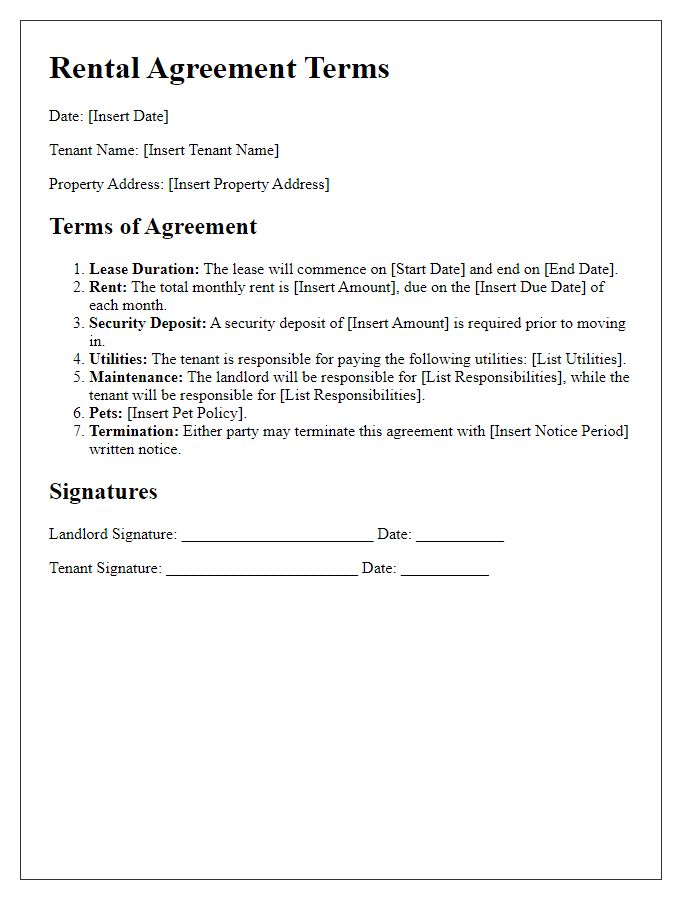
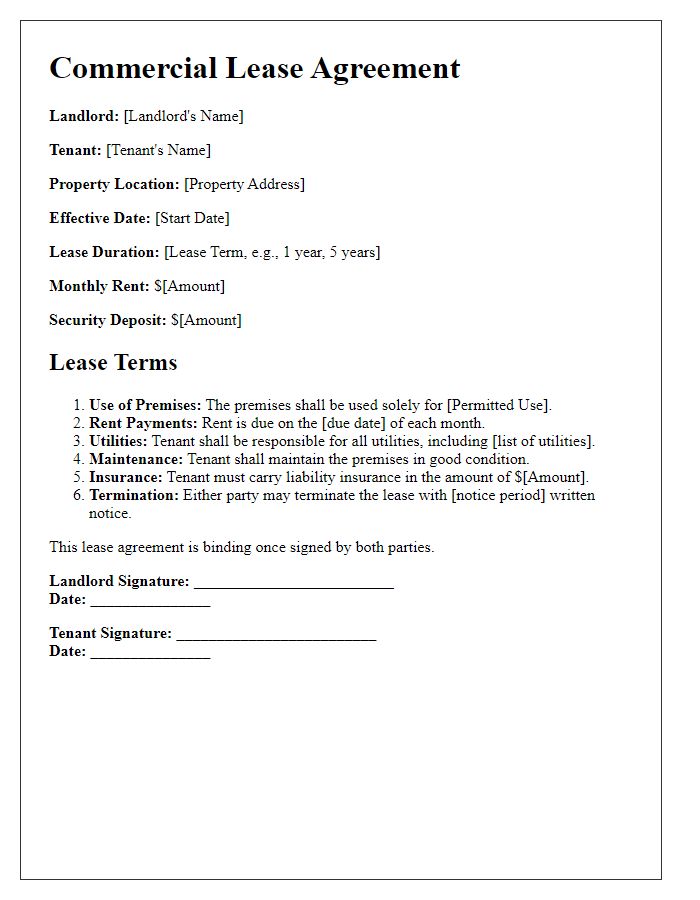
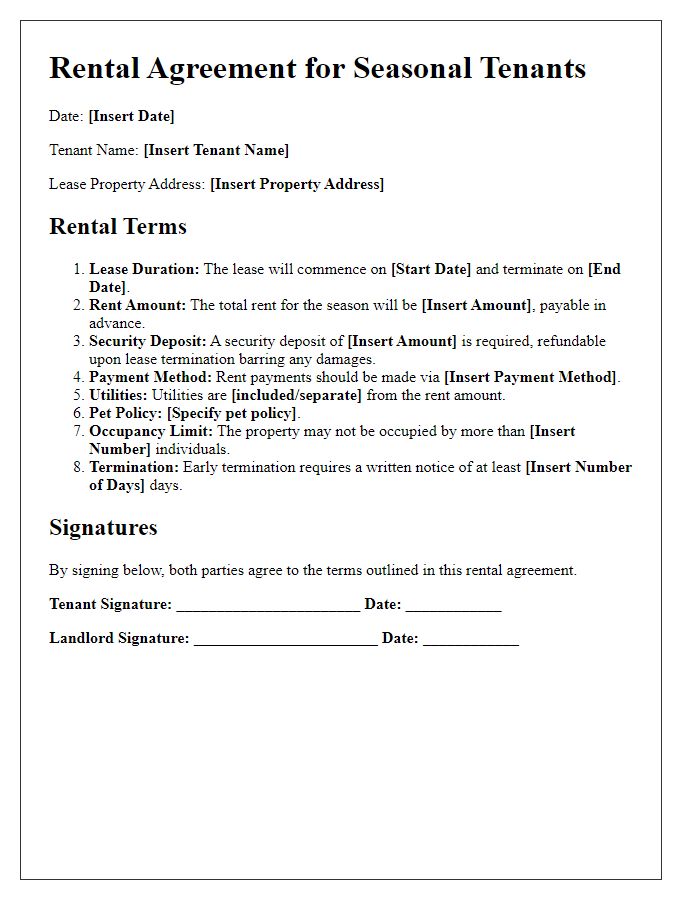
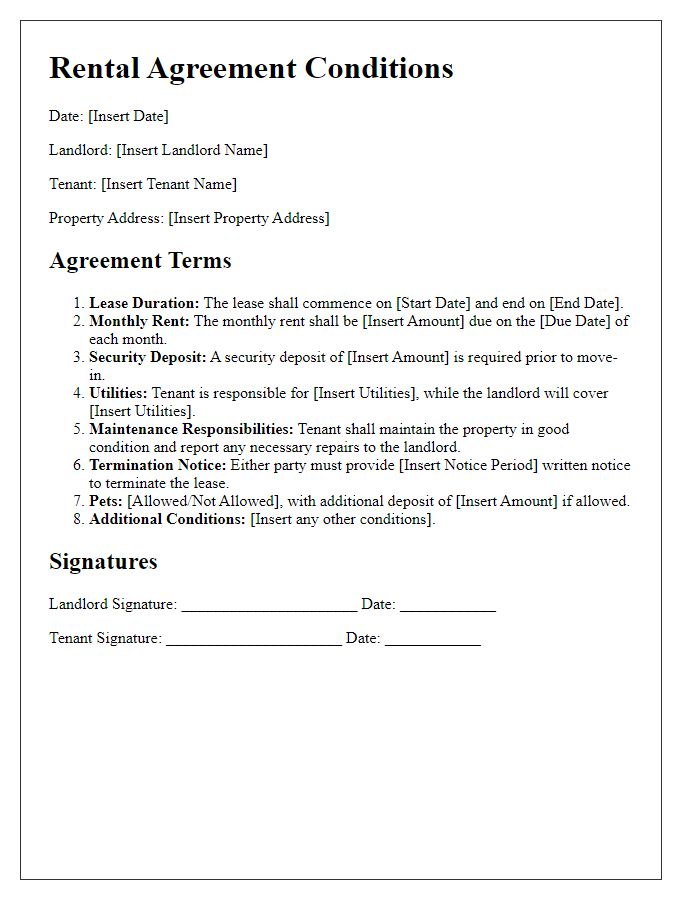
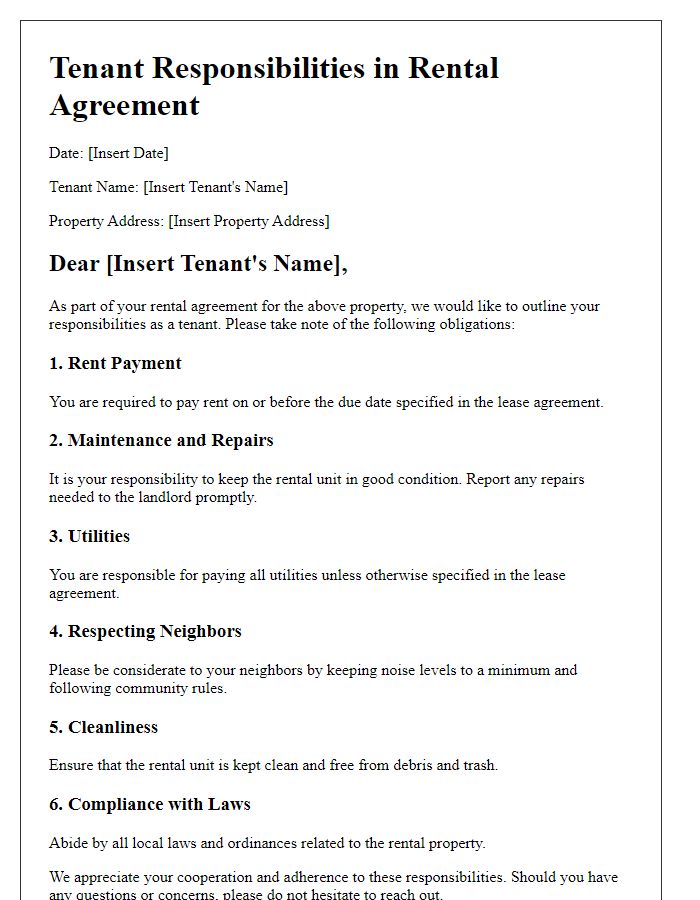
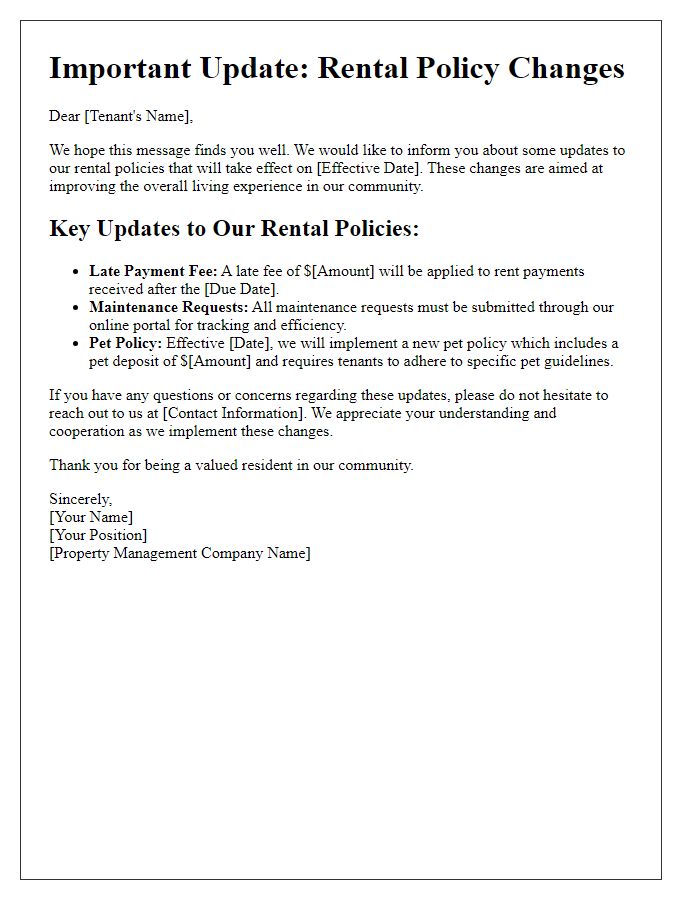
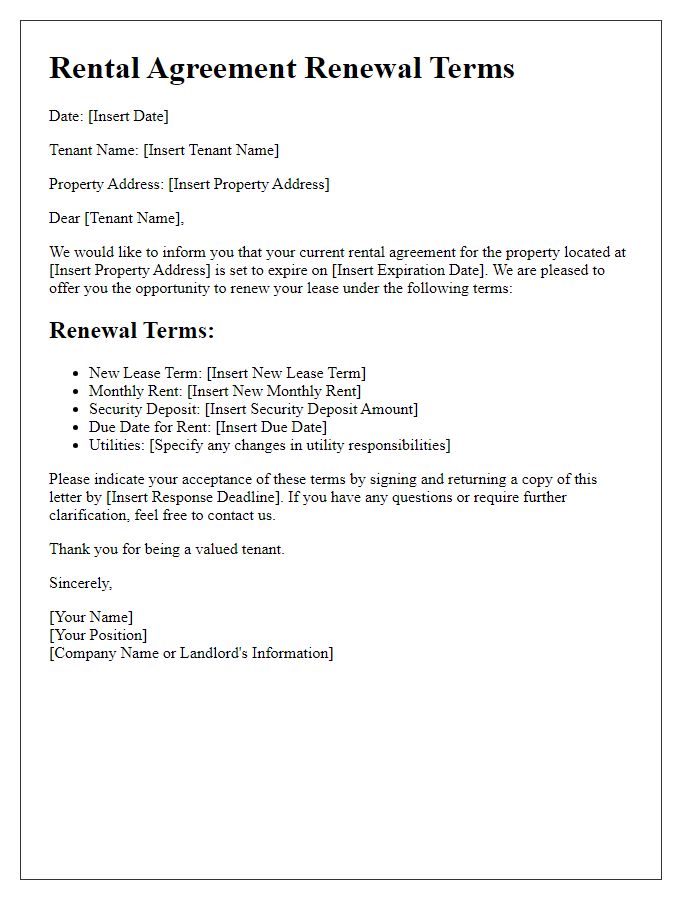
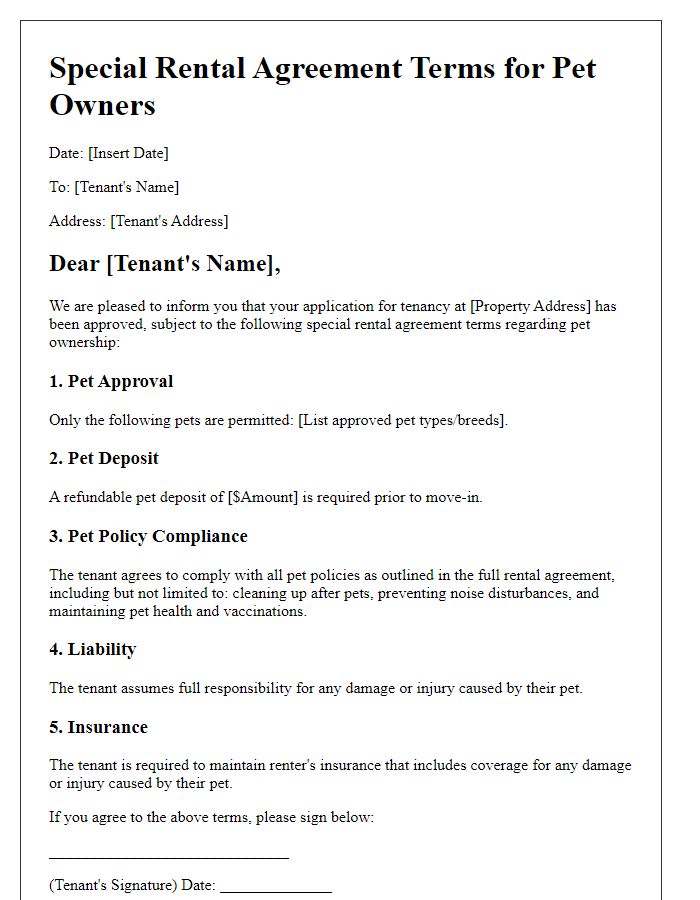
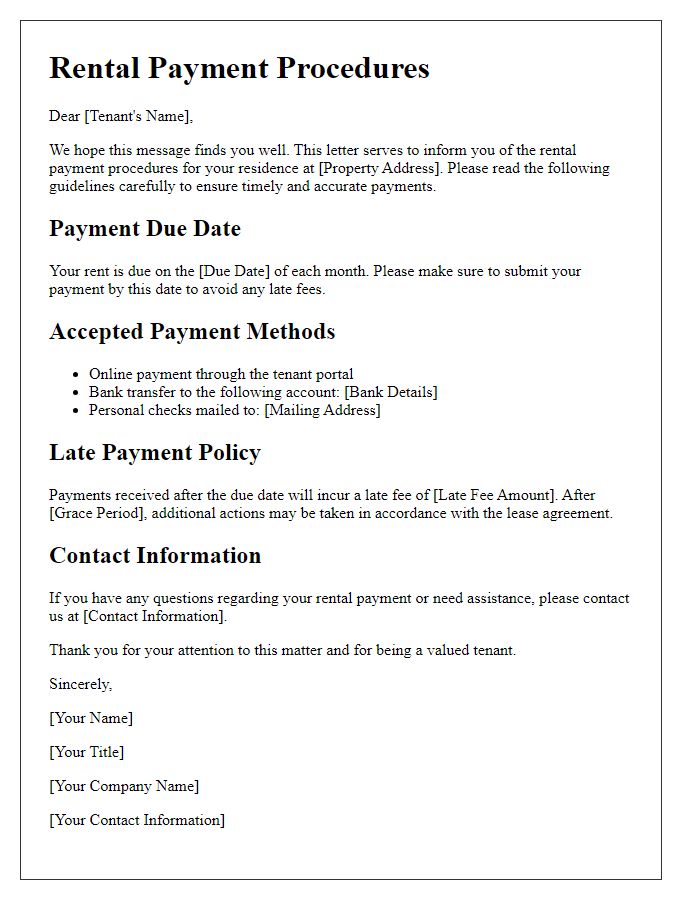
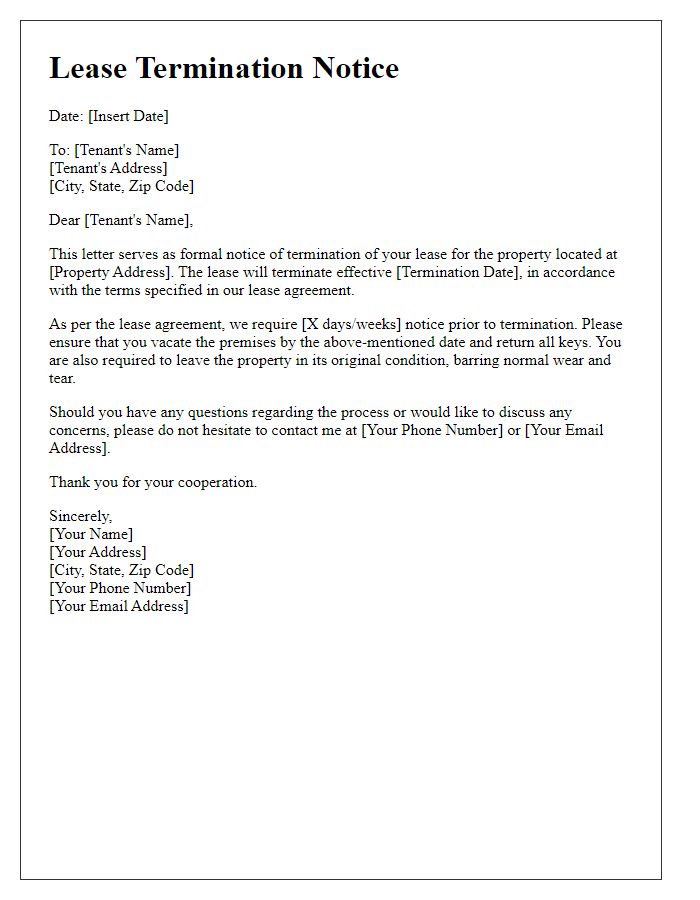

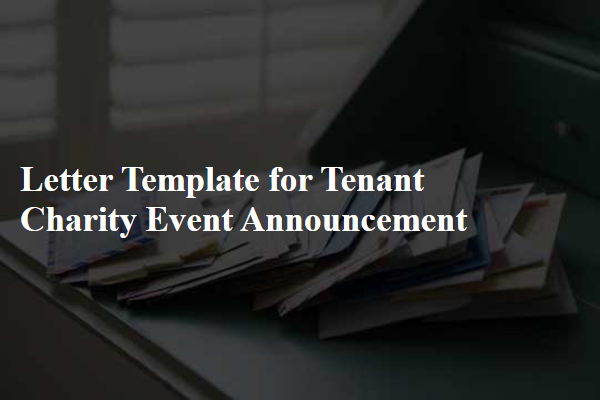
Comments